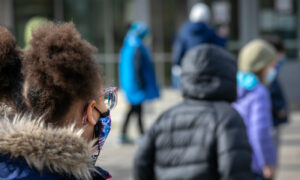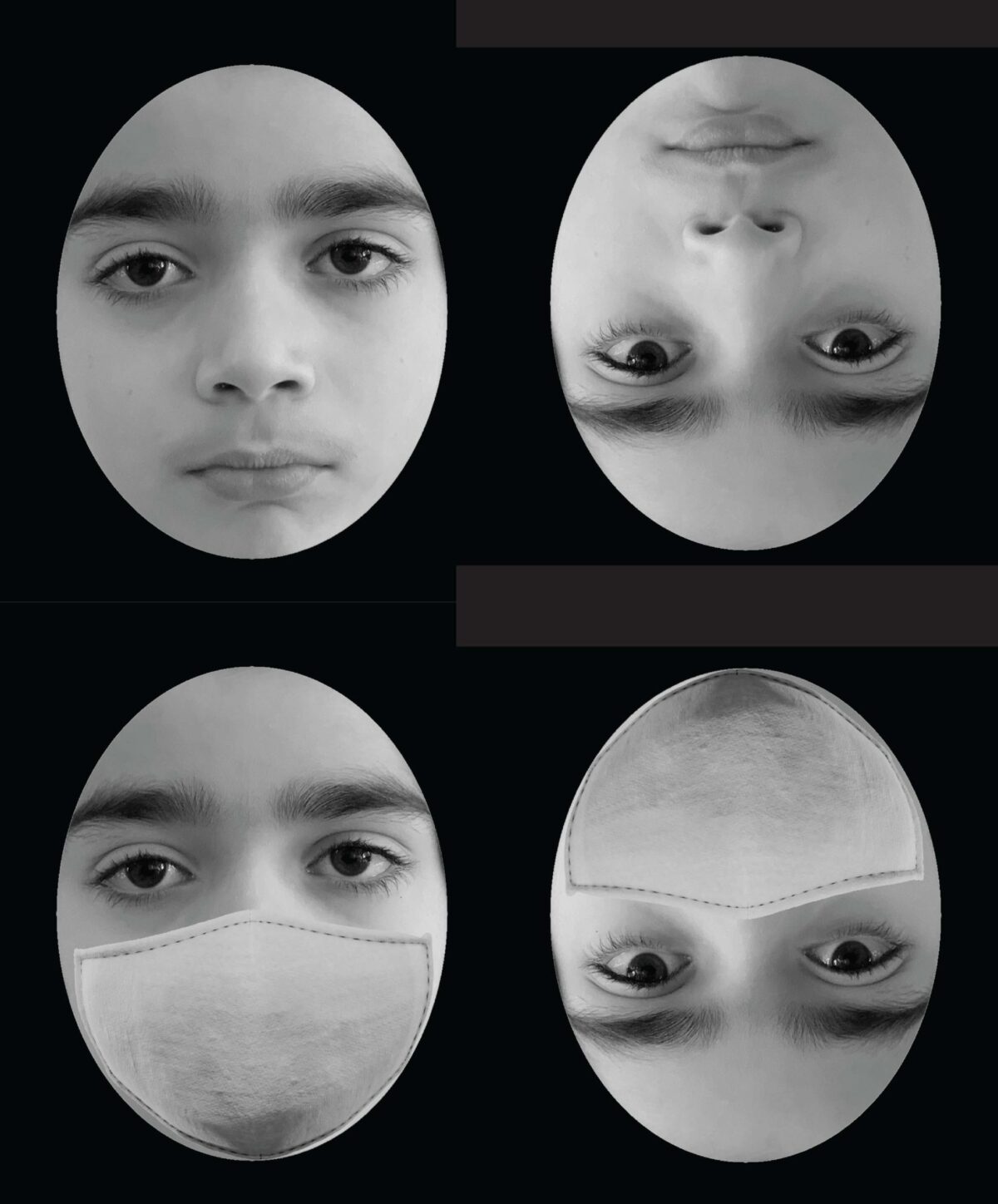Children ‘Struggle to Recognize Masked Faces:’ Study
Children have difficulty recognizing people who are wearing masks, according to a new study. Researchers had children complete a face memory test for kids called the CFMT-K and found that there was a significant difference between children studying unmasked faces and masked faces. “The main findings from this paper are that children struggle to recognize masked faces. We found a decrease of 20 percent in their ability to recognize masked faces, while the average decline is around 15 percent for adults,” Erez Freud, assistant professor in the Faculty of Health at York University in Canada, one of the researchers, told The Epoch Times in an email. Previous research already showed adults’ ability to process faces is hindered by masks. The new study is one of the first to examine the effects of masks on children’s facial recognition abilities. Researchers tested 72 children between the ages of 6 and 14 for the study. Splitting the children into two groups, one 11 years of age and younger, researchers compared the test results and concluded the effect of masking on recognition of faces differs little due to age. That means the mask effect likely reflects “a reduction in both holistic and featural processing,” according to the peer-reviewed study (pdf), which was published by Cognitive Research: Principles and Implications. An example of masked and unmasked faces shown to children for the study. (York University) Holistic processing refers to how humans concurrently process the whole face, as opposed to individual features. Featural processing refers to using features like the nose when analyzing faces. “Not only do masks hinder the ability of children to recognize faces, but they also disrupt the typical, holistic way that faces are processed,” Freud said in a statement. “If holistic processing is impaired and recognition is impaired, there is a possibility it could impair children’s ability to navigate through social interactions with their peers and teachers, and this could lead to issues forming important relationships. Given the importance of faces to social interactions, this is something we need to pay attention to.” School mask mandates became popular during the COVID-19 pandemic and many states have kept them in place for nearly two years, though multiple governors announced this week that they would soon rescind the requirements. Some experts say little data support the use of masks in schools while others assert mask-wearing has helped stem the spread of the CCP (Chinese Communist Party) virus, which causes COVID-19. Researchers of the new study led with the statement that wearing masks “is an effective tool in reducing the novel coronavirus transmission” and Freud said the findings should not prompt policymakers to stop requiring masks in schools. “While it is important to acknowledge that masks may alter face processing, the experts say the benefits of mask-wearing are far more significant in terms of our children’s safety and health,” he said. The group plans to next examine whether children’s growing experience with masked faces “facilitates children’s recognition abilities,” he added.

Children have difficulty recognizing people who are wearing masks, according to a new study.
Researchers had children complete a face memory test for kids called the CFMT-K and found that there was a significant difference between children studying unmasked faces and masked faces.
“The main findings from this paper are that children struggle to recognize masked faces. We found a decrease of 20 percent in their ability to recognize masked faces, while the average decline is around 15 percent for adults,” Erez Freud, assistant professor in the Faculty of Health at York University in Canada, one of the researchers, told The Epoch Times in an email.
Previous research already showed adults’ ability to process faces is hindered by masks. The new study is one of the first to examine the effects of masks on children’s facial recognition abilities.
Researchers tested 72 children between the ages of 6 and 14 for the study.
Splitting the children into two groups, one 11 years of age and younger, researchers compared the test results and concluded the effect of masking on recognition of faces differs little due to age. That means the mask effect likely reflects “a reduction in both holistic and featural processing,” according to the peer-reviewed study (pdf), which was published by Cognitive Research: Principles and Implications.

Holistic processing refers to how humans concurrently process the whole face, as opposed to individual features. Featural processing refers to using features like the nose when analyzing faces.
“Not only do masks hinder the ability of children to recognize faces, but they also disrupt the typical, holistic way that faces are processed,” Freud said in a statement.
“If holistic processing is impaired and recognition is impaired, there is a possibility it could impair children’s ability to navigate through social interactions with their peers and teachers, and this could lead to issues forming important relationships. Given the importance of faces to social interactions, this is something we need to pay attention to.”
School mask mandates became popular during the COVID-19 pandemic and many states have kept them in place for nearly two years, though multiple governors announced this week that they would soon rescind the requirements. Some experts say little data support the use of masks in schools while others assert mask-wearing has helped stem the spread of the CCP (Chinese Communist Party) virus, which causes COVID-19.
Researchers of the new study led with the statement that wearing masks “is an effective tool in reducing the novel coronavirus transmission” and Freud said the findings should not prompt policymakers to stop requiring masks in schools.
“While it is important to acknowledge that masks may alter face processing, the experts say the benefits of mask-wearing are far more significant in terms of our children’s safety and health,” he said.
The group plans to next examine whether children’s growing experience with masked faces “facilitates children’s recognition abilities,” he added.












